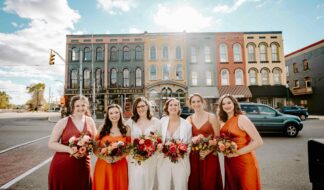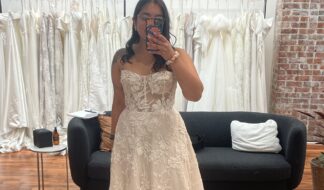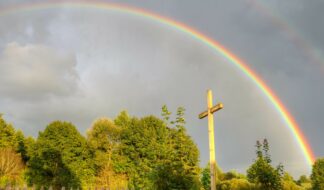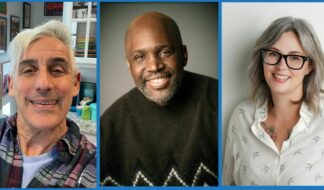By BTL Staff
A new report released Oct. 6, "Out and Visible: The Experiences and Attitudes of Lesbian, Gay, Bisexual and Transgender (LGBT) Older Adults, Ages, 45-75," shows high concern among older LGBT people about their ability to fund and care for themselves in retirement. The study found that 42 percent of LGBT older people are "very or extremely concerned" that they will outlive the money they have saved for retirement. Among heterosexuals, only 25 percent share such a concern, the report noted.
The report is based on a national survey of 1,857 LGBT people and 519 non-LGBT people, conducted in March 2014 by Harris Poll on behalf of SAGE.
"This study should compel healthcare and aging providers, as well as leaders in the public and private sectors, to create services, policies, products and institutions that are responsive to a growing, underserved demographic," said Michael Adams, executive director at SAGE, a national nonprofit dedicated to supporting LGBT older people.
The report explores five key areas: healthcare, finance and retirement, support systems, housing and sources of information and was authored by Robert Espinoza, SAGE's Senior Director for Public Policy and Communications.
Among its many findings, Out and Visible found that one in two (51 percent) LGBT older people is very or extremely concerned about "having enough money to live on," as compared to 36 percent of non-LGBT people; one in three (32 percent) of LGBT older people is very or extremely concerned about "being lonely and growing old alone," as compared to 19 percent of non-LGBT people.
"This new SAGE report sheds a much-needed spotlight on the ways in which aging in the LGBT community may bring with it unique vulnerability and challenges both for LGBT seniors and those who care for them," said Gary J. Gates, PhD, Williams Distinguished Scholar at the Williams Institute, UCLA School of Law.
Regarding healthcare, the study shows that 43 percent of LGBT older people who are single and 40 percent of LGBT older people in their 60s and 70s say their healthcare providers don't know their sexual orientations. Two-thirds of transgender adults (65 percent) in the study feel that there will be limited access to healthcare providers as they grow older.
The study also shows that about one in three (34 percent) LGBT older people lives alone (as compared to 21 percent of non-LGBT people), while 40 percent of LGBT older people say that their support networks have become smaller over time (as compared to 27 percent of non-LGBT older people). Of note, African American LGBT adults are three times as likely as white or hispanic LGBT adults to say that people from their churches or faith are part of their support systems (26 percent vs. 8 percent and 8 percent).
"Given the tremendous aging of the population, the report highlights many critical aging related needs of LGBT adults that must be a priority as we move forward serving these diverse communities. It is a must-read for service providers and policy makers alike," noted Karen Fredriksen-Goldsen, PhD, Principal Investigator of the National Health, Aging and Sexuality Study, Caring and Aging with Pride over Time and Professor at the University of Washington.
Some Other Key Findings
Finance and Retirement: Forty-two percent of LGBT older people are very or extremely concerned that they will outlive the money they have saved for retirement, as compared to 25 percent of non-LGBT people, and 44 percent of LGBT older people are very or extremely concerned that they will have to work well beyond retirement age in order to have enough money to live on, as compared to 26 percent of non-LGBT people. While most LGBT older people age 60 and older report being retired (70 percent), many of those who are not retired anticipate working, on average, until age 69. Moreover, half of all single LGBT older people believe that they will have to work well beyond retirement age.
Housing: One in eight (13 percent) of LGBT adults and one in four (25 percent) of transgender adults say that they have been discriminated against when searching for housing on the basis of their sexual orientations or gender identities, respectively. Forty-four percent of LGBT older adults are very or extremely interested in living in an affordable LGBT-friendly housing development at some point in the future.
Sources of Information: Both LGBT and non-LBGT older people are most likely to rely on the internet (40 percent vs. 38 percent) and family and friends (40 percent vs. 40 percent) as their primary sources of information on aging. LGBT older women are more likely than non-LGBT older women to look to government sources for information on aging (26 percent vs. 15 percent), while LGBT older men are three times as likely as non-LGBT older men to rely on social media (11 percent vs. 4 percent).









